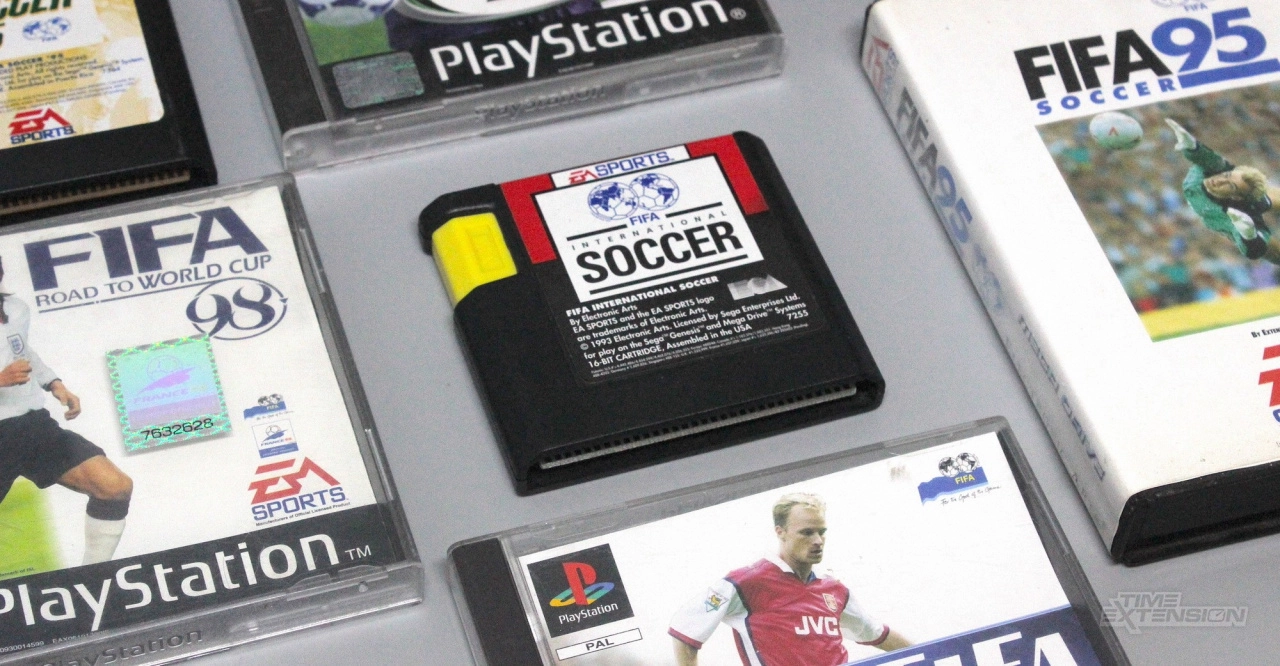
In 2023, the world celebrates the 30th anniversary of a gaming revolution that originated with the release of FIFA International Soccer for the Sega Mega Drive/Genesis back in December 1993. Developed by a small team at EA Canada, with assistance from EA UK, this game would become the foundation of a franchise that has sold over 325 million copies globally, becoming one of the best-selling video game series in history.
The origins of the game were firmly planted in the determination of the EA UK office to craft an authentic football simulation that would captivate audiences. At the time, the office was small and primarily focused on marketing and localizing North American products for Europe. Unlike the American audience, who enjoyed titles such as NHL Hockey and John Madden Football, the UK office believed a football game would resonate strongly with the European market.
Neil Thewarapperuma, EA's marketing manager at the time, took the initiative by drafting a WhyEA document - a technical proposal to justify the production of such a game. After initial resistance, the idea resurfaced with Matthew Webster, who shared Thewarapperuma's passion and developed a more detailed design document for a potential title called EA Soccer.
EA UK lacked a proper internal development team, prompting Webster to seek partnership with external developers, namely Jules Burt and Jon Law. Although they initially pitched a volleyball game, their capabilities were soon redirected to football, leading to the creation of three different game prototypes. The final design choice would be an innovative isometric view - a decision that would distinguish FIFA from other football games of the time like Kick Off and Sensible Soccer.
Development eventually moved to EA Canada, which had grown from the acquisition of Distinctive Software. The core team working on EA Soccer consisted of producer Bruce McMillan, development director Joe Della-Savia, and engineers Jan Tian and Brian Plank. Together, they pioneered a gameplay-focused approach, emphasizing realistic football mechanics over visuals.
The game's development was marked by authentic details, inspired by countless hours of football match footage analysis, collaboration on AI and gameplay, and enthusiastic feedback from testing teams. The dedication of individuals like Tian, who committed long hours and personal sacrifices, was indicative of the team's passion and drive.
An interesting aspect of FIFA's early development was that it did not initially have the FIFA branding. Instead, it was known internally as EA Soccer. This changed when EA UK managed to secure a four-year deal with FIFA through ISL, providing the title with an edge over competitors, despite not securing official player names or likenesses. To fill this gap, EA's employees volunteered their names, sometimes with creative adjustments to fit national teams.
As launch day neared, there were concerns from EA's North American marketing department about the game's branding. They suggested calling it "US Soccer" for the American market, but the team was adamant that it needed a unified FIFA brand worldwide. Their conviction paid off as the game launched globally as FIFA International Soccer.
Upon release, FIFA International Soccer received critical acclaim, with high scores from leading gaming publications praising its animation, presentation, and gameplay. It was a validation for the team's hard work and the start of a series that would see annual sequels, evolving with each iteration, and ultimately leading to today's modern versions of the game.
As EA announced moving forward as EA Sports FC, some members of the original development team expressed disappointment at the split but recognized the game's independence from the FIFA name. They foresaw continued success for EA Sports FC, acknowledging the complexity and creativity involved in game development that far surpassed the mere necessity of a license.
The legacy of FIFA International Soccer is a reminder of the game's humble beginnings, the dedication of its creators, and the massive influence it has had on the sports game industry. It's a testament to the impact that a committed team can have when it combines innovation with a passion for their subject matter.
You must be logged in to post a comment!